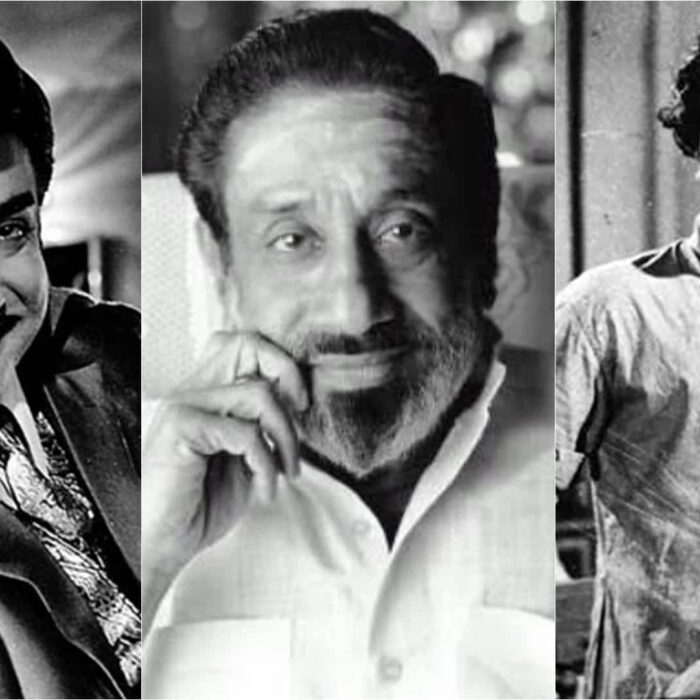
Sivaji Ganesan: Life Biography
Sivaji Ganesan was a renowned Indian film actor, producer, and politician who was born on October 1, 1928, in Villupuram, Tamil Nadu, India. He is considered to be one of the greatest actors in the history of Indian cinema, particularly in the Tamil film industry.
Early Life and Education:
Sivaji Ganesan was born Villupuram Chinnaiah Ganesan to a Tamil-speaking family in Villupuram, Tamil Nadu. His father, P.S. Venkatramaiah, was a lawyer, and his mother, Rajamani, was a housewife. He was the second child of the family and had three siblings.
Sivaji Ganesan completed his early education in Villupuram and moved to Madras (now Chennai) to pursue higher education. However, due to financial constraints, he had to drop out of college and started working as a clerk in the Indian Railways.
Career:
Sivaji Ganesan began his acting career in 1946 with the film ‘Parasakthi,’ which was directed by R. Krishnan and S. Panju. The film was a huge success, and Sivaji Ganesan’s performance was widely praised. He went on to act in several films in the next few years, including ‘Veerapandiya Kattabomman’ (1959), ‘Karnan’ (1964), ‘Thiruvilayadal’ (1965), ‘Pava Mannippu’ (1961), and ‘Vasantha Maligai’ (1972).
Sivaji Ganesan was known for his versatility and ability to portray complex characters on screen. He was particularly famous for his portrayal of mythological and historical characters, and his performances in films like ‘Veerapandiya Kattabomman’ and ‘Karnan’ are still remembered as some of the best in Indian cinema.
Apart from acting, Sivaji Ganesan also produced several films under his banner, Sivaji Productions. Some of the movies produced by him include ‘Vietnam Veedu’ (1970), ‘Uyarndha Manithan’ (1968), and ‘Thanga Pathakkam’ (1974).
Family
Sivaji Ganesan was born into a Tamil-speaking family in Villupuram, Tamil Nadu. His father, P.S. Venkatramaiah, was a lawyer, and his mother, Rajamani, was a housewife. He was the second child of the family and had three siblings.
Sivaji Ganesan was married to Kamala Ganesan, and the couple had four children – three sons named Ramkumar, Prabhu, and Shanthnu, and a daughter named Shanti. Prabhu and Shanthnu are both actors in the Tamil film industry.
Sivaji Ganesan’s family has a strong legacy in the Tamil film industry. Apart from his sons, his nephews, Vijayakumar, Ravikumar, and Arun Vijay, are also popular actors in the industry. His grandsons Vikram Prabhu and Dhruv Vikram are also actors. Overall, Sivaji Ganesan’s family has contributed significantly to the growth and development of the Tamil film industry.
Personal Life:
Sivaji Ganesan was married to Kamala Ganesan, and the couple had four children. His son, Prabhu, is also a famous actor in the Tamil film industry. Sivaji Ganesan was married to Kamala Ganesan, and the couple had four children – three sons named Ramkumar, Prabhu, and Shanthnu, and a daughter named Shanti. Prabhu and Shanthnu are both actors in the Tamil film industry.
Sivaji Ganesan was known for his dedication to his family and was a loving husband and father. He was also deeply involved in social and philanthropic activities, and he supported several charities and organizations throughout his life.
Despite his success in the film industry and politics, Sivaji Ganesan remained humble and down-to-earth. He was known for his simplicity and his ability to connect with people from all walks of life.
Sivaji Ganesan was also an avid reader and had a keen interest in literature and poetry. He was fluent in several languages, including Tamil, Telugu, Hindi, and English.
Sivaji Ganesan died on July 21, 2001, due to respiratory problems. His death was a great loss to the Indian film industry and the Tamil Nadu political scene. However, his legacy as one of the greatest actors in Indian cinema and a committed public servant continues to inspire people even today.
Political career
As mentioned earlier, Sivaji Ganesan was actively involved in politics and was a member of the Indian National Congress. He had a keen interest in social and political issues, and his performances often reflected his social consciousness.
Sivaji Ganesan’s political career started in 1984 when he was elected to the Rajya Sabha, the upper house of the Indian Parliament, as a member of the Indian National Congress. He served as a Member of Parliament from 1985 to 1991.
During his tenure in the Rajya Sabha, Sivaji Ganesan was known for his active participation in debates and discussions. He was a strong advocate for the Tamil language and culture and fought for the rights of the Tamil people.
Apart from his work in the Rajya Sabha, Sivaji Ganesan was also actively involved in the Tamil Nadu state politics. He campaigned for the Indian National Congress in several elections and was known for his charismatic speeches and his ability to connect with the people.
In 1996, Sivaji Ganesan formed his own political party, the Tamil Manila Congress (TMC). The party contested the state assembly elections in Tamil Nadu in 1996 but was unsuccessful in winning any seats.
Sivaji Ganesan’s political career was marked by his commitment to social justice, his support for the Tamil language and culture, and his passion for public service. He remains an inspiration to many in the Tamil Nadu political scene even today.
Filmography
Sivaji Ganesan had a long and illustrious career in the Tamil film industry, spanning several decades. He acted in over 300 films and was known for his versatility and powerful performances. Some of his notable films include:
- Parasakthi (1952)
- Velaikkari (1949)
- Thiruvilayadal (1965)
- Navarathri (1964)
- Veerapandiya Kattabomman (1959)
- Karnan (1964)
- Pasamalar (1961)
- Padithal Mattum Podhuma (1962)
- Thillana Mohanambal (1968)
- Deiva Magan (1969)
Sivaji Ganesan was known for his ability to portray a wide range of characters, including kings, warriors, saints, and common people. He was also a talented singer and often sang in his films.
Apart from Tamil films, Sivaji Ganesan also acted in a few Hindi films, including Pehchaan (1970) and Gauri (1968).
Sivaji Ganesan’s contribution to Indian cinema has been immense, and he remains one of the most respected and revered actors in the Tamil film industry even today.
Early career: 1952–1959
Sivaji Ganesan began his acting career in the early 1950s and gained recognition for his performance in the film “Parasakthi” (1952). The film, which was directed by R. Krishnan and S. Panju, was a bold and socially relevant film that dealt with issues such as casteism and social injustice. Sivaji Ganesan’s portrayal of a young man struggling against the injustices of society in “Parasakthi” was widely praised, and the film became a box office success.
Following the success of “Parasakthi,” Sivaji Ganesan went on to act in several other socially relevant films such as “Velaikkari” (1949), “Manohara” (1954), and “Aalayamani” (1962). He also acted in historical films such as “Veerapandiya Kattabomman” (1959) and “Karnan” (1964), where he played the roles of legendary kings.
During this period, Sivaji Ganesan also worked with some of the most talented filmmakers and actors in the Tamil film industry, including M. Karunanidhi, K. Balachander, and Nagesh. He was known for his dedication to his craft and would often immerse himself in his roles, sometimes even learning a new language or dialect for a particular film.
Overall, Sivaji Ganesan’s early career was marked by his commitment to socially relevant films and his ability to portray a wide range of characters with great depth and nuance. These early films laid the foundation for his later success and cemented his position as one of the greatest actors in Indian cinema.
Donning versatile roles: 1954–1968
In the mid-1950s, Sivaji Ganesan began to don more versatile roles that showcased his acting range. He took on challenging roles in films such as “Sorgavasal” (1954), “Avan Amaran” (1958), and “Bhagyaraj” (1964), where he played characters with complex personalities and emotional depth.
One of Sivaji Ganesan’s most famous roles during this period was in the film “Thiruvilayadal” (1965), where he played the role of Lord Shiva. His portrayal of the deity was widely praised, and the film became a classic in Indian cinema.
Sivaji Ganesan also acted in several films that dealt with the theme of family, such as “Pasamalar” (1961) and “Padithal Mattum Podhuma” (1962). These films showcased his ability to portray family values and emotions, and his performances in these films are still remembered today.
During this period, Sivaji Ganesan also worked with several talented directors such as K. Balachander, A. Bhimsingh, and Sridhar. He also acted alongside some of the most talented actors of his generation, such as M.G. Ramachandran, Gemini Ganesan, and N.T. Rama Rao.
Overall, the mid-1950s to the late 1960s were a prolific period for Sivaji Ganesan, where he cemented his position as one of the greatest actors in Indian cinema. His ability to take on challenging roles and his dedication to his craft set him apart from his peers and made him a beloved figure in the Tamil film industry.
Later career: 1980-1999
In the 1980s, Sivaji Ganesan continued to act in films and took on more mature and dignified roles. He acted in films such as “Punnagai” (1980), “Kizhakku Cheemayile” (1993), and “Thevar Magan” (1992), where he played the role of a patriarchal figure. His performances in these films were widely appreciated and earned him critical acclaim.
During this period, Sivaji Ganesan also acted in a few films outside the Tamil film industry, including the Telugu film “Swathi Muthyam” (1986) and the Hindi film “Aakhree Raasta” (1986). He also worked with a new generation of filmmakers and actors, such as Mani Ratnam, Kamal Haasan, and Rajinikanth.
In the late 1990s, Sivaji Ganesan’s health began to decline, and he appeared in fewer films. However, he continued to be a respected figure in the film industry and was often invited to attend film events and award ceremonies.
Sivaji Ganesan’s contribution to Indian cinema was immense, and his legacy continues to inspire generations of actors and filmmakers. He was a true icon of the Tamil film industry and a beloved figure among his fans and colleagues alike.
International awards
Sivaji Ganesan received several international awards and recognition for his contribution to Indian cinema. Some of the notable ones are:
- Chevalier Award: In 1984, Sivaji Ganesan was awarded the Chevalier Award by the French government for his contribution to the arts.
- Afro-Asian Award: Sivaji Ganesan was honored with the Afro-Asian Award in 1982 for his outstanding contribution to cinema.
- National Film Award: Sivaji Ganesan received the National Film Award for Best Actor for his performance in the Tamil film “Deiva Magan” in 1969.
- Filmfare Award: Sivaji Ganesan won the Filmfare Award for Best Tamil Actor several times for his performances in films such as “Padithal Mattum Podhuma” (1962), “Thiruvilayadal” (1965), and “Gauravam” (1973).
- Tamil Nadu State Film Awards: Sivaji Ganesan received the Tamil Nadu State Film Award for Best Actor several times throughout his career for his performances in various films.
Conclusion
Sivaji Ganesan’s contribution to Indian cinema was immense, and his legacy continues to inspire generations of actors and filmmakers. He was a true icon of the Tamil film industry and a beloved figure among his fans and colleagues alike.
Sivaji Ganesan was one of the greatest actors in Indian cinema, known for his remarkable talent, dedication, and versatility. His career spanned over five decades, during which he acted in over 300 films and left an indelible mark on the Tamil film industry.
Ganesan’s early career saw him play mostly romantic leads, but he quickly began to take on more challenging and complex roles that showcased his acting range. He won critical acclaim for his performances in films such as “Thiruvilayadal” (1965), “Deiva Magan” (1969), and “Thevar Magan” (1992).
Throughout his career, Ganesan worked with some of the most talented directors and actors in the Indian film industry, and his performances were recognized with several awards and honors, including the National Film Award, Filmfare Awards, Tamil Nadu State Film Awards, and the Chevalier Award.
Ganesan’s contribution to Indian cinema was immense, and his legacy continues to inspire generations of actors and filmmakers. He was a true icon of the Tamil film industry and a beloved figure among his fans and colleagues alike.
Also Read: BEST CUTE GIRLS WALLPAPERS & EXTREMELY CUTE WALLPAPERS FOR GIRLS (2023)











